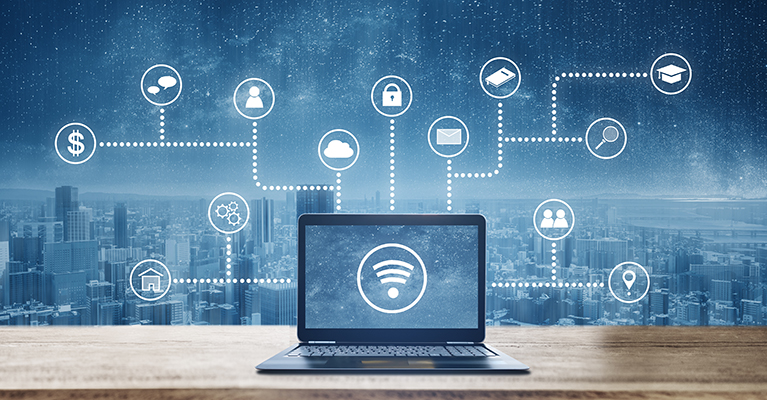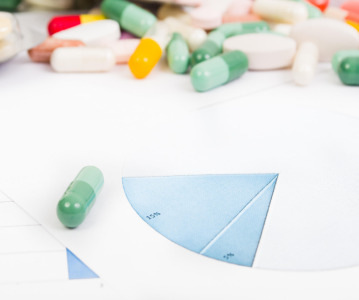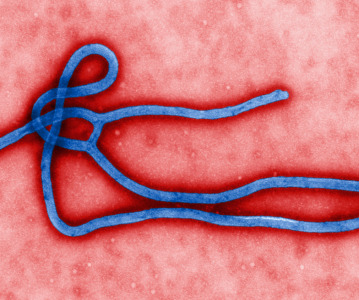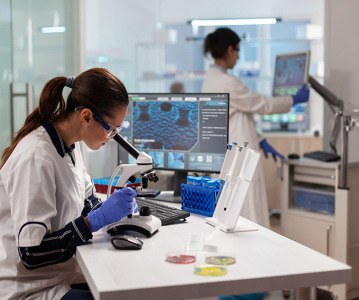How real-world data can revolutionise drug development

Utilising the current data environment and its data pools for the benefit of advancing research.
The changing face of drug development and the end of the blockbuster era demands a monumental shift in drug development strategies. Making use of a wider range of resources to inform research and not just focusing on clinical trial data can provide greater insights into treatments and patients. Real-world data taken from patients outside of the clinical research setting is one such resource that is gradually becoming more called upon. Aiden Flynn, CEO of clinical trial data and design experts, Exploristics, explores the current data environment and its data pools and how these can be fully utilised for the benefit of advancing research.
Types of data
Real-world data is a resource that can complement traditional clinical trial research to provide a more comprehensive picture and generalise findings to larger populations of patients. Real-world data comes from a variety of sources: from electronic health records (EHR) to medical insurance claims. There is also a new breed of data that is emerging via wearable technologies and genetic profiling kits such as 23 and me, both of which have the potential to reveal deeper insights into the base line health status of normal healthy subjects not presenting as patients or taking part in clinical trials.
Data pools
The growing number of data sources via various organisations offer a vital opportunity to glean useful information for healthcare decision-makers. Many developed countries now have high-value, real-world data pools through healthcare systems, charities and disease registries. There is a considerable need to exploit these wide-ranging public healthcare data sources effectively in order to ensure that this information can be fed into the system and provide useful input for researchers and other stakeholders along the drug development pipeline. To realise the full potential of real-world data gleaned from public and private sector bodies requires a Learning Healthcare System. Based on EHRs and other routinely collected healthcare data, a Learning Healthcare System allows data to be continuously fed into the system to improve understanding of treatment pathways and outcomes. As these systems evolve the potential exists to plug the output into platforms that help develop novel medical interventions and streamline patient care pathways.
Compiling and using real-world data in this way would bolster research from clinical trials and facilitate the integration of all medical research. For it to become a reality, healthcare bodies must be equipped with the right technologies to facilitate good data capture and ensure that any captured data is subjected to the right analytical methods. There also needs to be improved standards around consent, ethics and data access. Fully digitising and standardising data in the healthcare field will require a joint effort on an international scale and ensure that Learning Healthcare Systems can be fully implemented and utilised.
A transformation
The pools of rich real-world data that have been collected over the years across different countries offer a new and evolving prospect for bringing real-world insight into drug development. The liberation of this real-world data via state-of-the-art, digitised learning systems could transform the development of new medicines and the delivery of healthcare. The data revolution is only just beginning but it is set to be a significant transformation.
Related News
-
News Eli Lilly gets ready to launch five new drugs in 2023
Eli Lilly, the American pharmaceutical company (IN, USA) are gearing up for a big year ahead, with hopes to launch five new drugs and capitalise on growing obesity and Alzheimer’s disease markets. -
News Amgen buys Horizon for $27.8 billion in bold step into the rare disease market
Amgen Inc buys pharmaceutical company Horizon Therapeutics in a multibillion-dollar deal, in hopes to capitalise on it's portfolio of drugs in the highly sort after rare disease market. -
News Pharma Supply Chain People Moves
The latest appointments and promotions across the pharmaceutical supply chain. -
News Merck to donate new Ebola vaccine to defend against outbreaks in Uganda
Pharmaceutical giant Merck has announced they will be speeding up the processing of a new vaccine against the latest strain of the Ebola virus, to be donated to a global non-profit organisation for distribution -
News CPHI Podcast Series: Driving innovation with pharmaceutical startups
The latest episode in the CPHI Podcast Series explores how startups are driving innovation by taking high-risk approaches and doing business with greater agility. -
News Greener and efficient processes: Quaternary Ammonium Salts
Quaternary Ammonium Salts play a crucial part in Organic Chemistry processes at many major industries. Discover why.
-
News Biosimilars save patients $11B annually, but barriers to adoption remain in US market
Biosimilars introduce competition into the biologics market, driving down prices and increasing patient access. -
News WHO recommends use of two monoclonal antibody treatments against Ebola
The health body recommended use of treatments by Regeneron and Ridgeback Bio
Position your company at the heart of the global Pharma industry with a CPHI Online membership
-
Your products and solutions visible to thousands of visitors within the largest Pharma marketplace
-
Generate high-quality, engaged leads for your business, all year round
-
Promote your business as the industry’s thought-leader by hosting your reports, brochures and videos within your profile
-
Your company’s profile boosted at all participating CPHI events
-
An easy-to-use platform with a detailed dashboard showing your leads and performance




.png)


